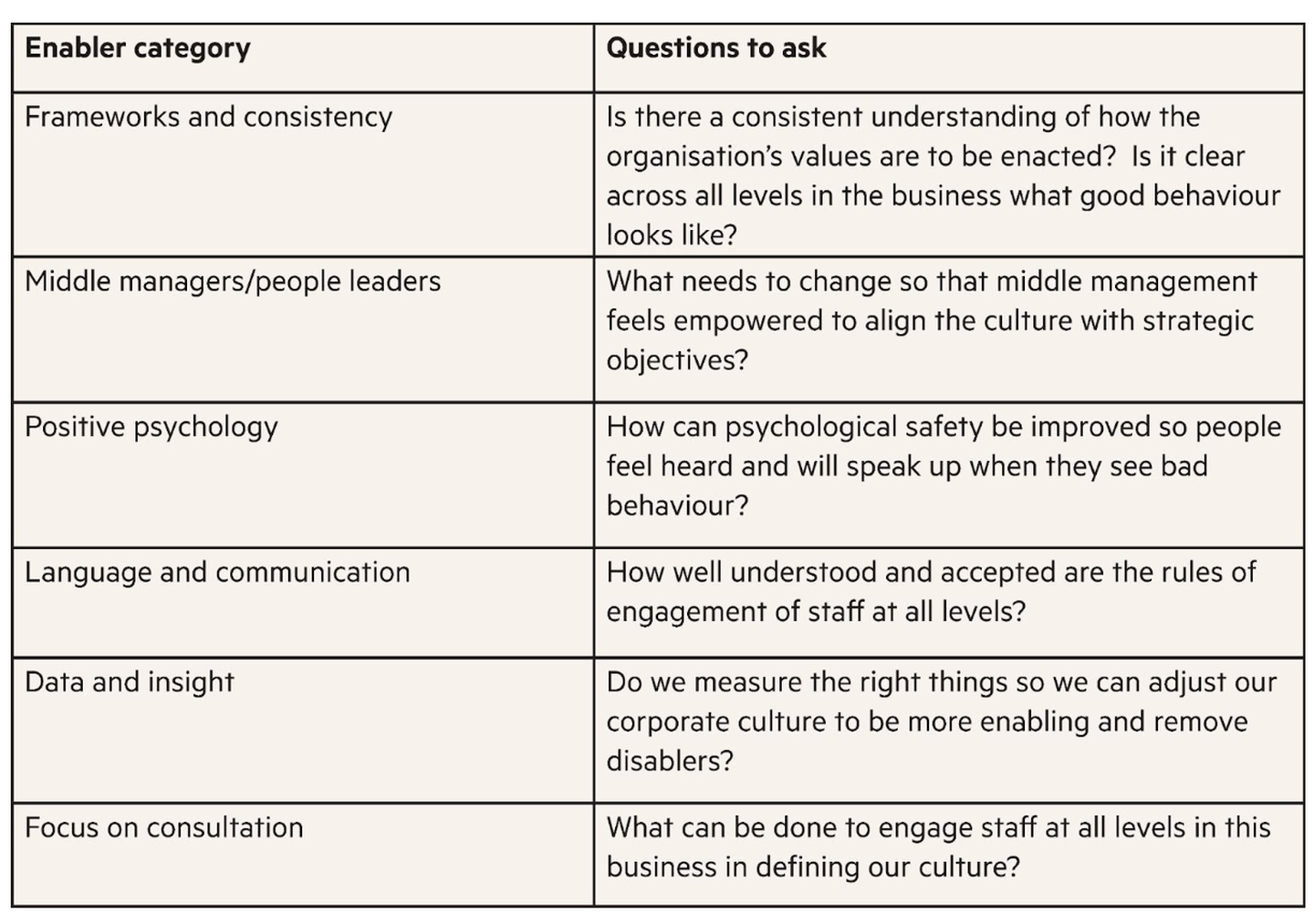By Allyson Stewart-Allen
Peter Drucker, the late Austrian-American business consultant, said: “Culture eats strategy for breakfast”, and most company directors will be aware of the power of culture to accelerate business and team performance.
In December 2021 the Financial Reporting Council published its research findings Creating Positive Culture: Opportunities and Challenges. It contains a list of culture enablers that every executive and non-executive director should foster. The boards of Boeing, P&O Ferries, Peloton, Meta and Volkswagen will be all too aware of the cost of cultural dysfunction.





The FRC enablers fall into several categories that help boards to monitor their outcomes. These are evidenced in the following ways:
Frameworks and consistency
- show how all the elements of an organisation’s culture (vision, mission, values, goals etc) fit and work together
- enable boards, leaders, middle managers and teams to understand the role they play
- act as a lens through which decisions are made and actions taken
Middle managers/people leaders
- drive change on a daily basis, given their focus on task, delivery and targets
- must be enabled or culture initiatives are likely to fail
- can become a barrier if their targets are not aligned with company culture
Positive psychology
- nurtures workers’ mindsets and facilitates engagement/consultation
- creates a safe environment for workers to raise concerns and share ideas
- enables challenging discussions on the company’s current and desired culture
Language and communication
- help to create a common narrative
- enable a shift in culture so long as the message is constant and consistent
- are key to clarity and relatability
Data and insight
- enable boards and leaders to assess and monitor culture
- show that there is no one single measure or one single point of truth
- work together to put culture into context
Focus on consultation
- results in more meaningful engagement
- is more effective in embedding culture change than a top-down approach
- should be all-encompassing across countries, departments and teams
Culture ambassadors
- support conversations about culture, helping to channel them down and across
- act as the eyes and ears of an organisation, reporting on strengths, weaknesses and the effect that culture is having on daily operations
- should be diverse and drawn from across the organisation
As a board member, here are the questions to ask to ensure that these enablers are a permanent feature of your business:





Conclusion
Corporate cultures provide the power to align, motivate and secure high performance from staff at all levels. It is incumbent upon boards to make sure that the behavioural rules support strategy and commercial objectives.
While often seen as an intangible, corporate cultures can and should be built and then monitored so they can deliver further benefits, including:
- shaping the employer brand for attracting/keeping talent
- enhancing the corporate brand for investors, regulators and clients/customers
- accelerating the exploration and exploitation of the innovation pipeline
While each of us has experience of a bad boss or compromised culture, there are ways to prevent and fix this so that the rules of engagement are positive and productive. Cultural governance is that path to success.
Allyson Stewart-Allen is chief executive of International Marketing Partners, which helps companies to expand their reach and extract more value from their markets. IMP has offices in London and Los Angeles.
This guide has been brought to you by FT Board Director. If you are not a member, register here.
